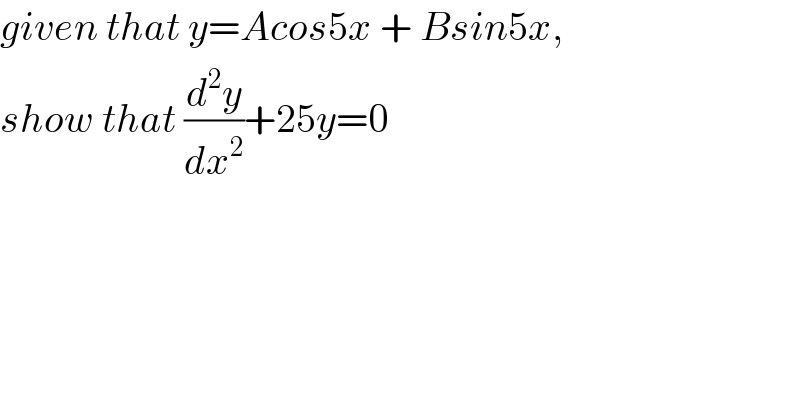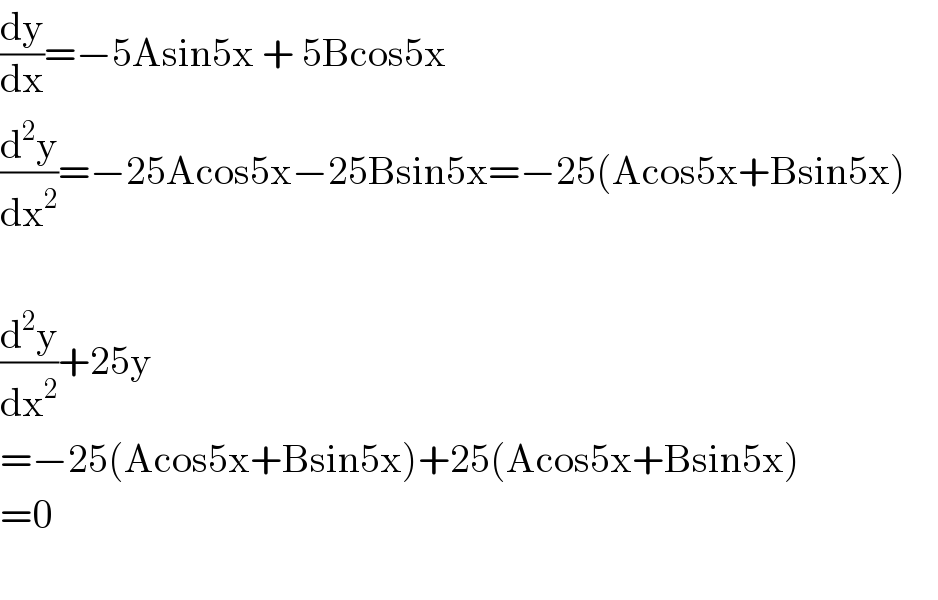
Question Number 11921 by carrot last updated on 05/Apr/17

$${given}\:{that}\:{y}={Acos}\mathrm{5}{x}\:+\:{Bsin}\mathrm{5}{x}, \\ $$$${show}\:{that}\:\frac{{d}^{\mathrm{2}} {y}}{{dx}^{\mathrm{2}} }+\mathrm{25}{y}=\mathrm{0} \\ $$
Answered by sandy_suhendra last updated on 05/Apr/17

$$\frac{\mathrm{dy}}{\mathrm{dx}}=−\mathrm{5Asin5x}\:+\:\mathrm{5Bcos5x} \\ $$$$\frac{\mathrm{d}^{\mathrm{2}} \mathrm{y}}{\mathrm{dx}^{\mathrm{2}} }=−\mathrm{25Acos5x}−\mathrm{25Bsin5x}=−\mathrm{25}\left(\mathrm{Acos5x}+\mathrm{Bsin5x}\right)\:\:\:\: \\ $$$$ \\ $$$$\frac{\mathrm{d}^{\mathrm{2}} \mathrm{y}}{\mathrm{dx}^{\mathrm{2}} }+\mathrm{25y} \\ $$$$=−\mathrm{25}\left(\mathrm{Acos5x}+\mathrm{Bsin5x}\right)+\mathrm{25}\left(\mathrm{Acos5x}+\mathrm{Bsin5x}\right)\:\:\:\:\: \\ $$$$=\mathrm{0} \\ $$$$ \\ $$
